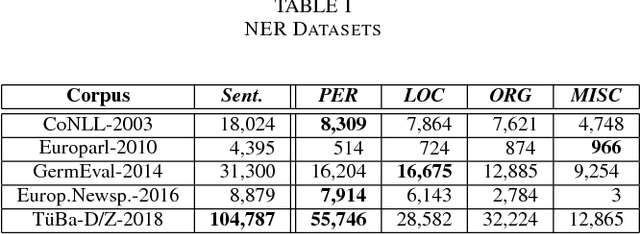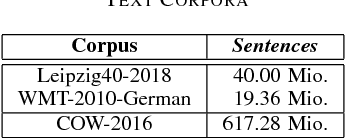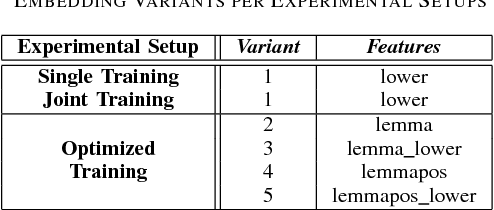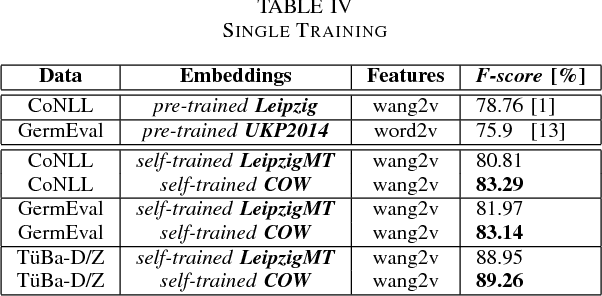Resource-Size matters: Improving Neural Named Entity Recognition with Optimized Large Corpora
Paper and Code
Jul 26, 2018



This study improves the performance of neural named entity recognition by a margin of up to 11% in F-score on the example of a low-resource language like German, thereby outperforming existing baselines and establishing a new state-of-the-art on each single open-source dataset. Rather than designing deeper and wider hybrid neural architectures, we gather all available resources and perform a detailed optimization and grammar-dependent morphological processing consisting of lemmatization and part-of-speech tagging prior to exposing the raw data to any training process. We test our approach in a threefold monolingual experimental setup of a) single, b) joint, and c) optimized training and shed light on the dependency of downstream-tasks on the size of corpora used to compute word embeddings.
 Add to Chrome
Add to Chrome Add to Firefox
Add to Firefox Add to Edge
Add to Edge